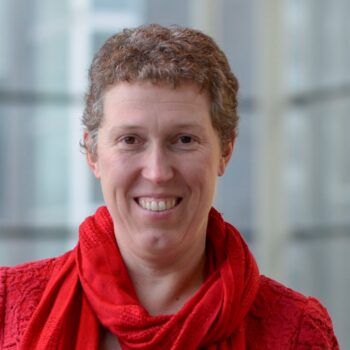PhD Position - Optical Detection to gain insights in Neurodegenerative Diseases

PhD Position - Optical Detection to gain insights in Neurodegenerative Diseases
Vrije Universiteit Brussel's teams of Bio-engineering Sciences, Applied Physics and Photonics, and Chemical Engineering are looking for an excellent PhD candidate in optical detection to gain insights into neurodegenerative diseases. This exciting interdepartmental opportunity involves research at the intersection of microfluidics, detection of hydrogen peroxide changes in cells using fluorescent protein-based biosensors, and innovative optical detection schemes (fluorescent imaging and surface-enhanced Raman Spectroscopy). The successful candidate will work on a cutting-edge project aimed at advancing our understanding of subcellular dynamics and metabolite communication in neurodegenerative diseases, like ALS. You will have the chance to collaborate with leading experts in the field and utilize state-of-the-art facilities and equipment.
Responsibilities:
- Develop novel optical techniques and methodologies for improved detection sensitivity and accuracy
- Conduct research experiments and data analysis within the designated research area
- Collaborate with interdisciplinary teams to advance research objectives and contribute to scientific publications
- Present research findings at conferences and seminars
Researcher profile
- Master's degree (or equivalent) in relevant fields, e.g., Physics, Photonics Engineering, Optics, Biotechnology, Bio-engineering, Biochemistry, etc.
- Preference will be given to candidates with a Master's thesis in (optical) detection techniques, or cellular fluorescence detection techniques
- Excellent communication in English and interpersonal skills
- Ability to work independently and as part of a team
- Prior research experience in related areas is advantageous
Our offer
Starting date: TBD
- Competitive stipend and benefits package
- Access to cutting-edge research facilities and resources
- Opportunities for professional development and networking
- Initial one-on-one supervision by a more senior scientist
- Collaborative and supportive research environment
- Guidance in fellowship applications
At VUB, your days will be spent in a dynamic, diverse and multilingual environment. Our main campus is set within green oases on the outskirts of the centre of the capital of Flanders, Belgium and Europe. This centre, with all its opportunities, is within your reach by public transport in under half an hour. As an employee of the Vrije Universiteit Brussel, you will receive an attractive salary corresponding to one of the pay scales laid down by the government, depending on your experience and academic merits. Hospitalisation insurance and free use of public transport for travel to and from work are standard conditions of employment. If you would rather cycle to work, compensation is also available for that. More information is available at www.vub.be.
Interested?
Interested candidates are invited to submit a CV, a cover letter outlining their research interests and relevant experience, academic transcripts, and contact information for at least two references. Please email your application to joris.messens@vub.be and heidi.ottevaere@vub.be with the subject line: "PhD Student Application: Optical Detection", and join us in making groundbreaking discoveries and shaping the future of scientific research! We look forward to welcoming you to our team at the VUB.
Apply now!
Contact
Looking for a job in Photonics?
For 50 years, the Vrije Universiteit Brussel has stood for freedom, equality and connectedness. These values are strongly present on our campuses, in our students as well as our staff. At the VUB, you’ll find a diverse collection of personalities: pure innovators and especially people who are 100% their authentic selves. With about 3.500 employees, we are the largest Flemish-speaking employer in Brussels, an international city with which we are all too happy to be connected, and around which our four campuses are located.


